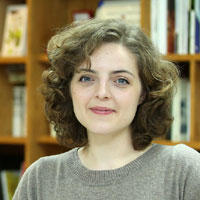View this article in another language
- 한국어
- English
- 日本語
- 中文
- العربية
- Español
- Français
- Deutsch
- Pусский
- Tiếng Việt
- Indonesian

By Sophie Bowman
Lee Ho-chul passed away on Sept. 18, 2016. I really wish I’d made a recording of our conversation the one time we met. I vividly remember our chat like it was yesterday, though it was years ago. It’s hard to believe he’s gone. His tone was urgent but he had a humble manner of speaking. He talked about going to North Korea and being reunited with his younger sister. He said he was certain he could visit his hometown again someday. The prospects of that happening back then were even lower than they are today, but he seemed so sure. These days, I often wonder what he would say about everything going on now.
Born in 1932 in a village near the port city of Wonsan, which is now part of North Korea, Lee spent the first years of his life in a Japan-ruled Korea. In elementary school, he had to read, write and speak in Japanese at school. By the time he entered high school, Wonsan was part of the Democratic People’s Republic of Korea, aka North Korea, which was pursuing Soviet-style communism under the leadership of Kim Il-sung.
Just a few weeks before Lee was to graduate from high school, the Korean War broke out and he was drafted. Through the most amazing turns of luck and coincidence, he escaped from the army and returned to his hometown. Shortly afterwards, however, rumors were rife that nuclear weapons would be deployed against North Korea. He then fled south on a boat to Busan, never imagining seeing again most of his family or the place where he grew up.
My first and only meeting with Lee came after I’d made up my mind to translate one of his books into English. My goal was to get his blessing for the task and ask questions. I’ll never forget first seeing him, sitting on a low step outside a fancy bakery on a busy street, completely unselfconscious. Some writers when you meet them can appear as all mystique and profound utterances, but Lee exuded character and energy. We went to an empty restaurant on a nearby side street and talked over a simple meal. He had almost as many questions for me as I did for him, but after about an hour, he apparently decided I was OK. Thus he gave me his blessing to go ahead and translate his book.
Among the questions I asked him was how he escaped government censors and gotten so many of his satirical works published. Make no mistake, he experienced plenty of twists and turns and brushes with the law, even getting falsely accused of spying and spending time in prison. Yet even in the book I was working on (that was serialized in a major daily, no less), there were jokes about self-styled “security men” who always wore dark glasses and puffer jackets like certain powerful military men. His answer to my question was that the power of the story helped his works elude censors. The censors would’ve read everything he wrote, probably in a hurry, and if they got wrapped up in the story because it was funny or engaging or pulled at their heartstrings, they’d forget to bring out their black ink or make a fuss.
After hearing of his passing, I was unable to translate his material for a few months. It felt like he was reading over my shoulder every time I wrote, perhaps wondering what was taking me so long. I’m now getting back on track and growing used to hearing his voice as I go. Now it’s just a question of figuring out what word or phrase he’d use if he was telling me the same story in English.
Works by Lee Ho-chul available in English include Southerners, Northerners, his account of his experiences during the Korean War and beyond, and Panmunjeom and Other Stories, a “greatest hits” collection of his short stories. Hopefully these will be joined by Seoul Is Heaving, which tells of a winsome young woman called Gil-nyeo and her life on the streets of Seoul.
Sophie Bowman, who earned an M.A. in Korean literature at Ewha Womans University, is a translator of Korean literature.